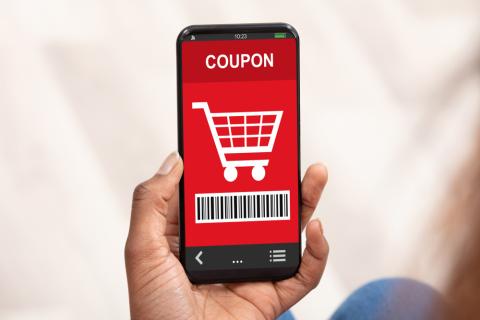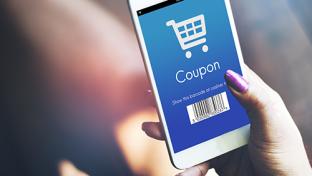Catalina to Offer New Standard for Coupon Security in Omnichannel

In an effort to prevent fraudulent coupons, shopper intelligence provider Catalina will be the first company to offer omnichannel marketing campaigns featuring the next standard in coupon security, GS1 US Application Identifier (AI) 8112, in both digital and paper formats.
Catalina has been instrumental in (AI) 8112, which was released last year, since its inception. The new 8112 standard will enable real-time validation of coupon offers at retail while creating a new universal standard for single-use offers. The scope of this effort goes beyond digital offers on an individual shopper's mobile device. In partnership with the Association of Coupon Professionals and The Coupon Bureau, Catalina will distribute offers through its broad ecosystem of digital channels, including digital display, place-based media and connected television, as well as its in-store printer network at participating retailers.
"With over $100 million in annual fraud wreaking havoc on the coupon industry, it is critical for innovators like Catalina to lead the industry in advancing the standard to a more secure format that reduces the burden on all parties and discourages counterfeit activity," said Brandi Johnson, CEO of The Coupon Bureau, which is based in Fort Worth, Texas. "We anticipate that adoption will be accelerated thanks to the extensive scale of Catalina's retailer network, coupled with their manufacturer client base representing millions of coupons annually."
Catalina has knowledge of shopping behaviors and preferences for 109 million households across the United States. It currently delivers $6.1 billion in value annually in partnership with retailers to a precisely targeted set of consumers, offering a balance in scale and control for both brands and retailers.
Manufacturers can now add the protection of the 8112 coupon standard to protect their offers from abuse and mis-redemption, with the ultimate aim of making Catalina offers the gold standard in controlled promotion distribution.
"Brands have more options than ever on how and where to promote, but also more constraints and pressure to show that the marketing investment is generating a positive return," said Ryan Monahan, SVP of product solutions at Catalina, which has operations in the United States, Costa Rica, Europe and Japan. "A misguided offer that goes viral or a high-value offer that gets cloned and redistributed can wreck a brand's budget. Our partnership with The Coupon Bureau to offer single-use and real-time authentication of coupons will give marketers confidence that their offers will be used only as intended."
The partnership comes at a time when the grocery industry is seeing price increases that have shoppers seeking ways to offset the blow to their wallets. According to data from Inmar Intelligence’s “2021 Promotion Industry Trends Analysis and July Shopper Insights Study,” digital coupon redemptions accounted for 33% of all coupon redemptions in the first half of 2021, while free-standing inserts accounted for 24%.
With more consumers looking for ways to save a buck, they can easily get duped into using fraudulent coupons. The financial impact of coupon fraud was brought to light for retailers and manufacturers earlier this year, when the feds uncovered a $31 million counterfeit scheme by a couple from Virginia Beach, Va. Lori Ann Talens, the leader of the coupon conspiracy, was sentenced on Sept. 14 to 12 years in prison for the crime.







